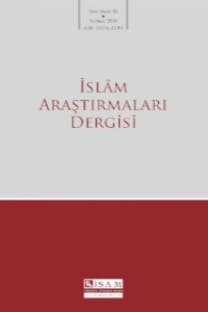Çok Yönlü Bir Sufinin Gözüyle Son Dönem Osmanlı Hayatı: Aşçı Dede’nin Hatıraları
The general assumption within the Ottoman historiography is based on the poverty of “self-narrative” texts by the Ottomans contrary to the richness of official Ottoman archival documents. This argument is based on the claim that pre-modern Ottomans lacked strong sense of individuality required by personal writings. For Terzioğlu it was the other way round: along with the negation of this misunderstanding in harmony with new approaches to Ottoman cultural and intellectual history has led to many studies on autobiographies beginning to appear in Ottoman historical writing. Furthermore, she suggests that the most fruitful social group for the autobiographical studies seems to be Sufi communities and their social entourage. The majority of writers of the first-person narratives mostly belonged to Sufi communities. There are a number of different identities, and each account gives important insights into their everyday life, their personal Sufi experiences, families, and friends. An outstanding example of this kind of memoir written by a Sufi was recently edited. It appears to be a treasury that includes much valuable data about the socio-cultural history of the Ottoman Empire in the 19th and beginning of the 20th century, in addition to many details about the personality of the author, Aşçı Dede İbrahim.
Keywords:
Aşçı Dede Osmanlı hayatı, Terzioğlu,
___
- Koç, Mustafa ve Eyüp Tanrıverdi (ed.), Çok Yönlü Bir Sufinin Gözüyle Son Dönem Osmanlı Hayatı: Aşçı Dede’nin Hatıraları, İstanbul: Kitabevi, 2006.
- ISSN: 1301-3289
- Yayın Aralığı: Yılda 2 Sayı
- Başlangıç: 1997
- Yayıncı: TDV İslâm Araştırmaları Merkezi
Sayıdaki Diğer Makaleler
İbnü’l-Arabî ve Takipçilerinin Tanrı Anlayışı: Tenzih ve Teşbih Hükümlerinin Birleştirilmesi
Islamic Maritime Law: An Introduction
Nasîruddîn Tûsî Felsefesinde Nefsin Soyut Bir Cevher Oluşunun Temellendirilmesi
Doğu’dan Batı’ya Felsefe Köprüsü
Avicenna’s Metaphysics in Context
The Zahiris: Their Doctrine and their History -A Contribution to the History of Islamic Theology-
